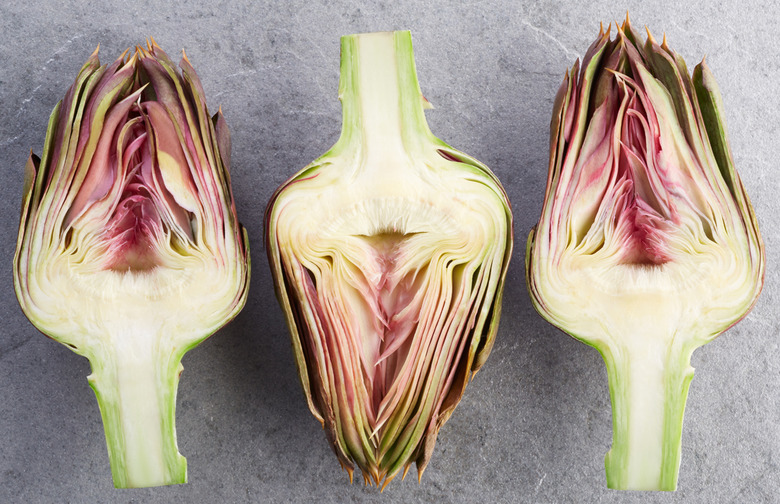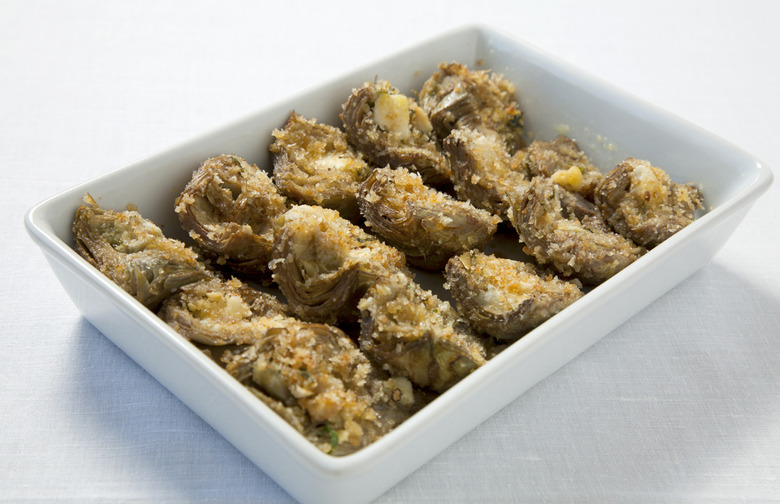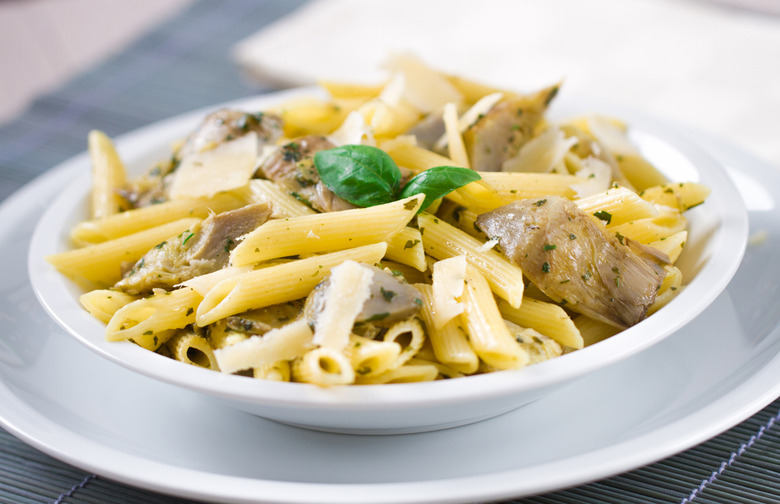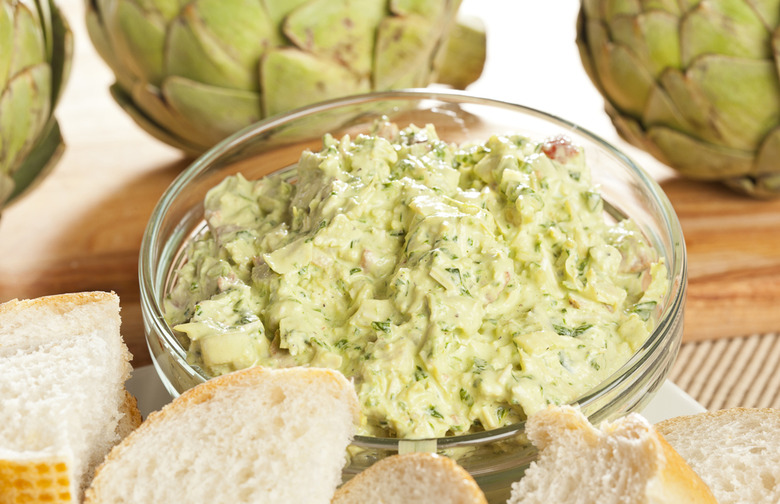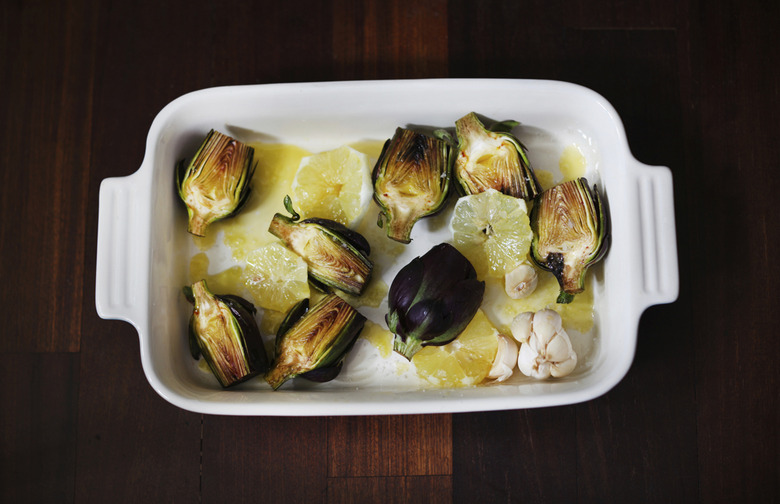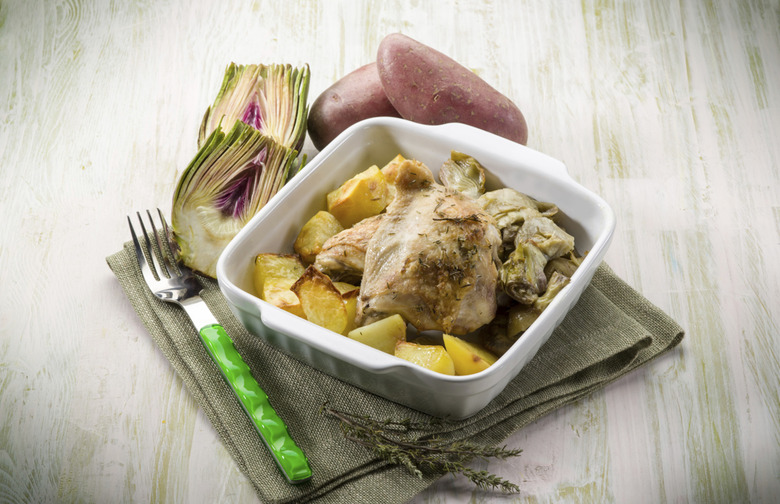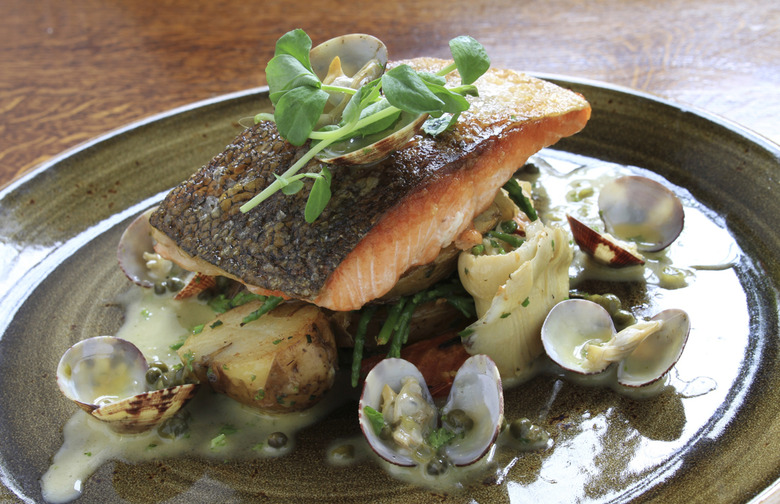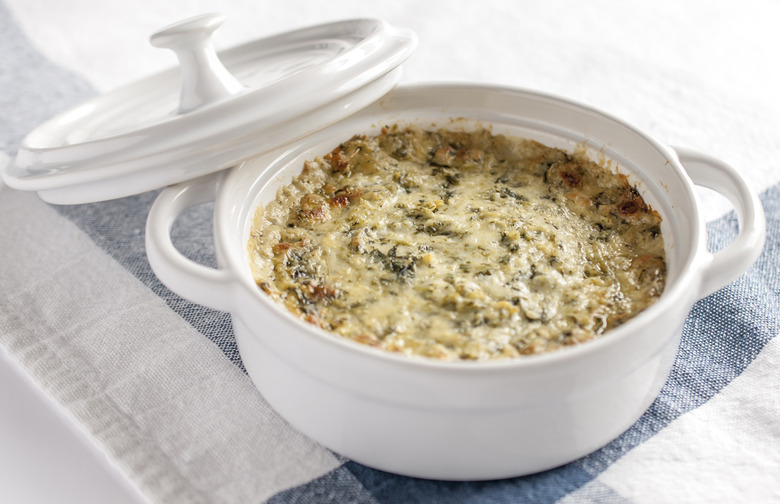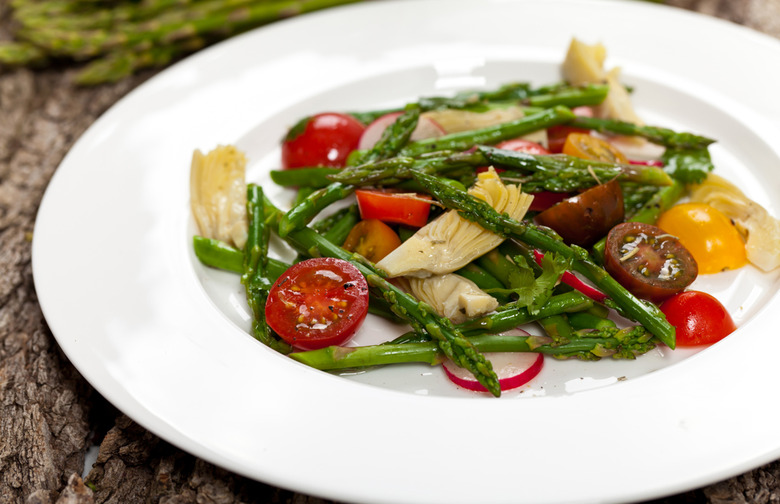Why You Should Be Eating Artichoke Hearts And 9 Ways To Cook With Them
Hand-prepared or bought in a jar, we hope you see the obvious health benefits of eating artichoke hearts. We've decided to give you a few ways to use artichoke hearts in your own kitchen. Click ahead to see our list of 9 ways to cook with these beneficial vegetables.
Bake Them
An artichoke heart's versatility allows it to be cooked in many ways. We're using the term loosely here, but you can "bake" them amongst a multitude of proteins, vegetables, and starches.
Incorporate Them in a Pasta Salad
Will artichokes take the main stage in our next list of the best pasta salads? We'll let you be the judge of that after you experiment with putting a few artichoke hearts into your favorite pasta salad recipe.
Put Them in a Dip
Whether it's a regular artichoke dip or its slightly twisted cousin, the spinach artichoke dip, artichokes work very well in party spreads with chunks of bread or pita.
Roast Them
You've roasted potatoes before, so how about placing some artichoke hearts alongside of your spuds the next time you have the oven on?
Click here for our Roasted Artichoke Hearts with Potatoes and Olive Oil recipe.
Serve with Chicken
You can prepare chicken in many ways with many different spices. Pairing poultry with the slightly pickle-ish, Brussels sprouts-esque taste of artichoke hearts is a worthwhile culinary move.
Click here for our Chicken with Artichoke Hearts, Olives, and Capers recipe.
Serve with Salmon
Speaking of artichoke hearts with protein, don't be afraid to pair your hearts with heart-healthy salmon.
Click here for our Roasted Salmon and Artichoke Hearts recipe.
Slow-Cook Them
Slow-cookers are in. We've published more slow-cooker recipes than most people have the time to attempt, but try tossing some artichoke hearts in the next time you're experimenting with cooking slowly.
Click here for our Slow Cooker Southwest Spinach and Artichoke Dip recipe.
Top Your Pizza with Them
You may find the idea of artichokes on pizza weird, but we assure you that it's not as strange as some other peculiar pizza toppings used around the world.
Use Them in a Salad
There are endless ways to make salad. Marinated artichoke hearts have enough flavor to replace salad dressing, and we'd like to see you experiment with your grill to put toasted artichoke hearts on top of a bed of greens. (Look at that — a bonus way to use them!)
Click here for our Artichoke and Perfect Asparagus Salad recipe.
